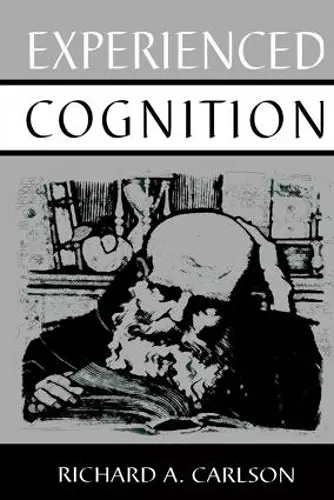Experienced Cognition
Format:Paperback
Publisher:Taylor & Francis Inc
Published:1st Sep '97
Currently unavailable, and unfortunately no date known when it will be back
This paperback is available in another edition too:
- Hardback£135.00(9780805817324)

This volume presents a theoretical framework for understanding consciousness and learning. Drawing on work in cognitive psychology and philosophy, this framework begins with the observation that to be conscious is literally to have a point of view. From this starting point, the book develops a descriptive scheme that allows perceptual, symbolic, and emotional awareness to be discussed in common theoretical terms, compatible with a computational view of the mind. A central theme is our experience of ourselves as agents, consciously controlling activities situated in environments. In contrast to previous theories of consciousness, the experienced cognition framework emphasizes the changes in conscious control as individuals acquire skills.
The book is divided into four parts. The first introduces the central themes and places them in the context of information-processing theory and empirical research on cognitive skill. The second develops the theoretical framework, emphasizing the unity of perceptual, symbolic, and emotional awareness and the relation of conscious to nonconscious processes. The third applies the experienced cognition framework to a variety of topics in cognitive psychology, including working memory, problem solving, and reasoning. It also includes discussions of everyday action, skill, and expertise, focusing on changes in conscious control with increasing fluency. The last concludes the book by evaluating the recent debate on the "cognitive unconscious" and implicit cognition from the perspective of experienced cognition, and considering the prospects for a cognitive psychology focused on persons.
This book addresses many of the issues raised in philosophical treatments of consciousness from the point of view of empirical cognitive psychology. For example, the structure of conscious mental states is addressed by considering how to describe them in terms of variables suitable for information-processing theory. Understanding conscious states in this way also provides a basis for developing empirical hypotheses, for example, about the relation of emotion and cognition, about the apparent "mindlessness" of skilled activity, and about the nature and role of goals in guiding activity. Criticisms of the computational view of mind are addressed by showing that the role of first-person perspectives in cognition can be described and investigated in theoretical terms compatible with a broadly-conceived information-processing theory of cognition.
"The book is scholarly, insightful, and contributes to the lively current discussion about the nature of consciousness."
—CHOICE
"This book outlines a bold approach for reconciling phenomenological experience with current theories of cognitive psychology. Consciousness is treated as a useful, indeed critical component of cognition, rather than (as is typical) a pernicious thorn in the side of basic science which can be neither explained nor entirely dismissed. This integration of consciousness is accomplished through an ingenious melding of standard cognitive models with Gibson's theory of perception and philosophical analyses of intentionality. The result impressively illuminates how we might proceed to incorporate subjective perspective into scientifically grounded theories of mind."
—Jonathan Schooler
University of Pittsburgh
"Carlson does a very good job of making the case for why it is important for cognitive psychology to consider consciousness, skill acquisition, and the ecological perspective. This is a special accomplishment when writing about consciousness, a topic on which the writing is so often tangled and impenetrable; here, by contrast, the writing is both lucid and pithy. Although readers may not agree with everything the author has to say, they will certainly be better off for having read it."
—Michael Stadler
University of Missouri
ISBN: 9780805817331
Dimensions: unknown
Weight: 635g
368 pages